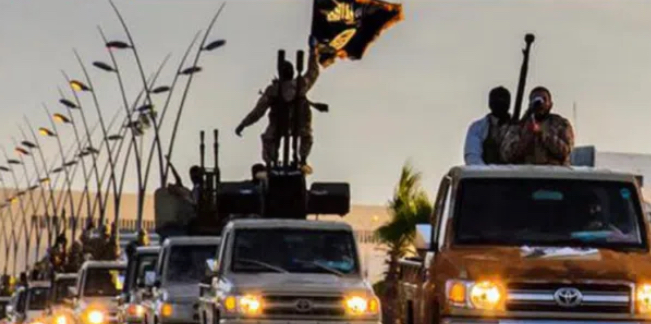The terror group ISIL has asked for donations in crypto using a QR code linked to their propaganda e-magazine “Voice of Khorasan”.
The global fight against terrorism is facing a new front as terrorist organizations adapt to an increasingly digital world, finding new ways to raise and move funds. As per recent findings from the United Nations Security Council’s Monitoring Team, the notorious terror group ISIL has “migrated” to cryptocurrencies from their long trusted “hawala”(undisclosed money transfer without money movement) route.
The UN security council report further states that ISIL and other related terror organizations are now preferring Monero cryptocurrency and are asking for donations using QR codes embedded in their propaganda e-magazines.
The alarming report states that terror organizations like ISIL and Al Qaeda are now discarding their traditional methods of raising funds, such as hawala, kidnapping and extortion, and now prefer the “anonymity enhancing” cryptocurrencies.
The report further states that these organizations have even set a “halal parametre” (Halal translates to lawful in Islamic society context) for acceptance of cryptocurrencies to promote their ideology and operations. The UN report states that two specialized crypto channels were set on Telegram messenger application, named- CryptoHalal and Umma Crypto- to accept donations in crypto that have been sanctioned as per “preliminary sharia assessment”.
The damning report by the UN security council’s monitoring team is set to raise eyebrows in several countries including the US, UK, Europe and India. The findings will also lead to debated over stricter regulations around the crypto sector to detect movement of funds for terror related activities.
Recently, the U.S. Treasury Department’s Financial Crimes Enforcement Network (FinCEN) had raised an alert urging financial institutions to monitor cryptocurrency transactions potentially linked to the terrorist group Hamas.
The report details how ISIL has established specialized channels on platforms like Telegram to guide supporters in acquiring and using specific digital currencies. For instance, ISIL-K has launched donation drives using QR codes linked to Monero wallets, leveraging the anonymity these privacy coins provide. Despite some cryptocurrency exchanges delisting Monero, its use among terrorist groups is on the rise, making it challenging for authorities to trace the flow of funds.
In August 2020 US government seized more than 300 cryptocurrency accounts, as well as several websites and Facebook pages, allegedly belonging to members of al-Qaida, ISIS and the military wing of Hamas.
Assessment of crypto as per “sharia”
Specialized channels like CryptoHalal and Umma Crypto on Telegram have been established to provide religious guidance and facilitate the acquisition of cryptocurrencies. These channels not only promote religious legitimacy but also offer anonymity, making it difficult for authorities to trace transactions.
This expansion in ISIL’s use of digital platforms is a growing concern for Member States. Various cryptocurrency exchanges, gaming platforms, e-wallets, and stablecoins are used to raise and transfer funds. One Member State noted that while the use of cash couriers and hawala are preferred for transferring funds into conflict areas, ISIL has purposely migrated to cryptocurrencies and online payment systems. The increased utilization of digital methods in the form of electronic wallets, sale of prepaid cell cards, and cryptocurrencies is expected to become even more pervasive and significant.
Privacy coins like Monero have become a preferred medium for terrorist financing due to their ability to obfuscate transaction details. The UN report emphasizes the difficulty of monitoring these transactions, as they offer a level of anonymity unmatched by traditional financial systems. ISIL and its affiliates have used these features to conduct fundraising campaigns, ensuring that their financial operations remain hidden from authorities.
The complex nature of terrorist financing networks is also highlighted in the report. ISIL’s affiliates, particularly in Africa, contribute significantly to the organization’s financial strength. These affiliates often rely on informal channels, making them less susceptible to disruption. For example, ISIL-K received $2.5 million in 2023, some of which was potentially linked to specific attacks, underscoring the persistent threat these organizations pose.
The UN Security Council report is bound to set alarms blaring in several nations that have been at the receiving end of these terror organizations. It’s implications will also be felt in the crypto world as hawkish security agencies are likely to increase their monitoring of major movement of assets linked to suspicious activities.

